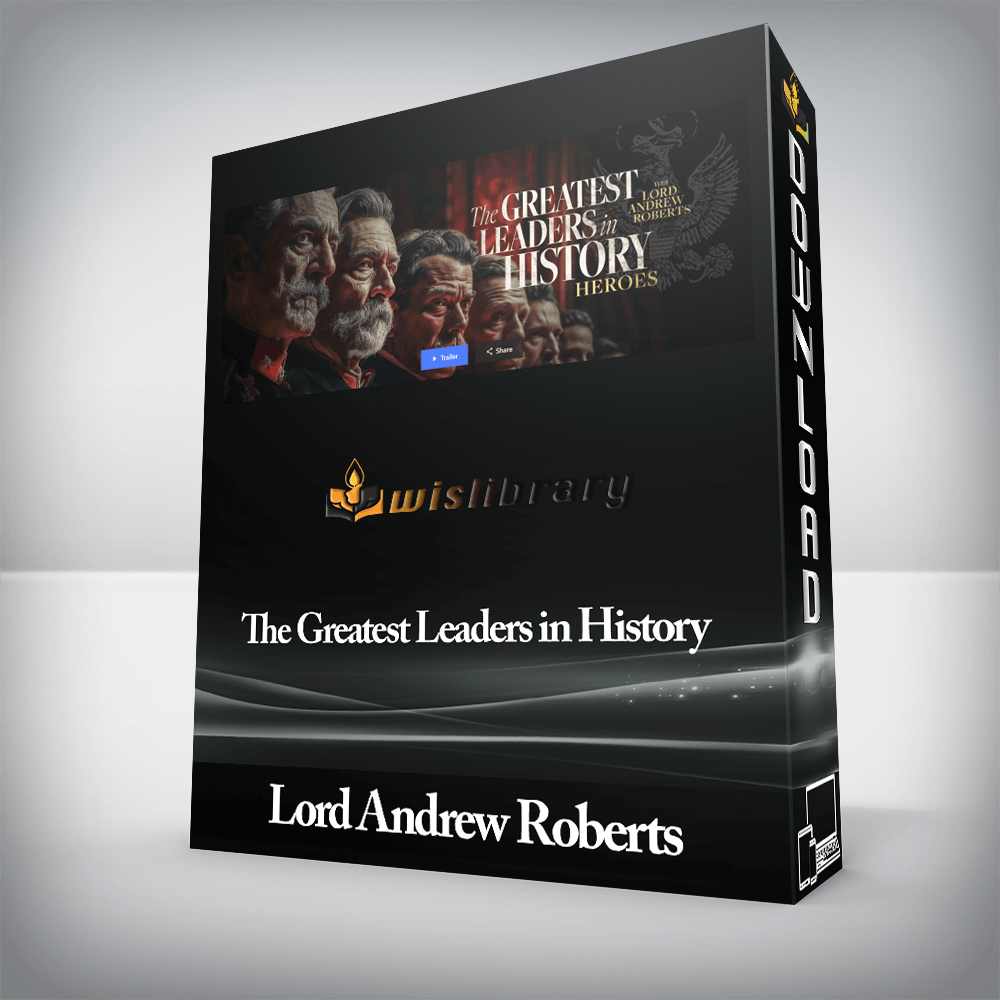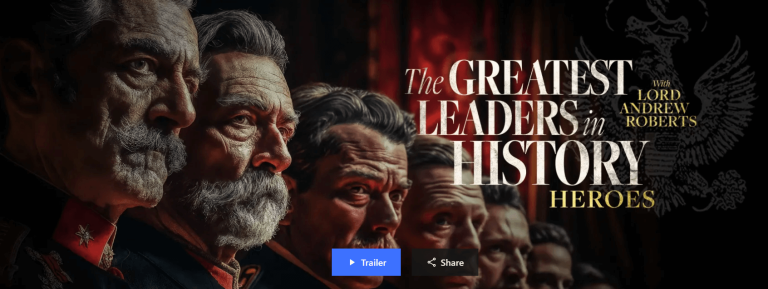

Historian
In The Greatest Leaders in History, an eight-hour course, Lord Andrew Roberts explores the lives and leadership of eight extraordinary figures: Pericles, Julius Caesar, Napoleon Bonaparte, Horatio Nelson, Winston Churchill, George C. Marshall, Dwight D. Eisenhower, and Margaret Thatcher. Through examining their military victories, political reforms, and personal qualities, we gain insights into the nature of effective leadership across different eras and contexts. The course highlights the importance of strategic vision, moral courage, oratorical skills, and the ability to inspire and manage strong personalities while pursuing decisive goals.
In this introductory lecture, Lord Andrew Roberts sets the stage for our exploration of eight extraordinary leaders in history. We begin with Pericles, the illustrious statesman of ancient Athens. The lecture examines his key role in converting the Delian League into an Athenian empire, his advocacy for democracy, and his strategic leadership during the Peloponnesian War against Sparta. Lord Roberts highlights Pericles’ oratorical skills, his ability to persuade the Athenian people, and the importance of having a trusted inner circle while also embracing self-doubt in the decision-making process.
In lecture two, we study the life and leadership of Julius Caesar, one of history’s greatest military commanders and statesmen. We explore his numerous military victories, political reforms, and the qualities that made him an enduring template for future leaders, while also examining the role of ruthlessness, risk-taking, and charisma in his rise to power.
In lecture three, we learn about the life and legacy of Napoleon Bonaparte, exploring his pivotal role in the French Revolution, his unparalleled military genius, and his enduring impact as a lawgiver. We examine how his humble Corsican origins and the ideals of the Revolution shaped his sense of destiny, propelling him to become one of the most influential figures in history.
In lecture four, we delve into the leadership techniques and essence of Horatio Nelson, focusing on his determined pursuit of decisive victory and his commitment to maintaining the initiative in battle. The lecture explores Nelson’s personal qualities, including his courage, charisma, and ability to inspire his men, while also examining the brutal nature of naval warfare during the Napoleonic era and Nelson’s complex personal life and predilections.
In lecture five, we look at the story of Winston Churchill, exploring his sense of destiny, his military service, his oratorical skills, and his role in spotting the threat of Adolf Hitler and the Nazis. We examine how his past experiences, including numerous brushes with death, shaped his calm and resolute leadership style during the immense pressures of World War II. Lord Roberts also touches on Churchill’s personal relationships, his electoral defeat in 1945, and the enduring lessons we can learn from his legacy of courage and foresight.
In lecture six, we explore the life and leadership of George C. Marshall, the “organizer of victory” during World War II. We examine Marshall’s crucial role in building up the American military, coordinating Allied strategy, and enabling the successful D-Day landings, highlighting his tireless work ethic, strategic vision, and ability to manage strong personalities while maintaining focus on the ultimate goal of victory.
In lecture seven, we delve into the biography of Dwight D. Eisenhower, exploring his rise through the military ranks, his pivotal role as Supreme Allied Commander in Europe during World War II, and his presidency. We examine how Eisenhower’s diplomatic skills, likability, and ability to keep the Allied coalition together were crucial to the success of Operation Overlord and the broader war effort. The importance of humility is emphasized, as exemplified by Eisenhower’s own words acknowledging the sacrifices of his followers and friends.
In our eighth and final lecture, we trace Margaret Thatcher’s legacy, exploring her role in the Falklands War and her impact on British politics. We examine how her scientific background and upbringing shaped her leadership and highlight the significance of her status as Britain’s first female prime minister. We reflect on the enduring lessons we can learn from Thatcher’s leadership, emphasizing the vital importance of moral courage and the capacity to stand firm in one’s convictions, even in the face of opposition and adversity.
There are no reviews yet.
You must be <a href="https://wislibrary.net/my-account/">logged in</a> to post a review.